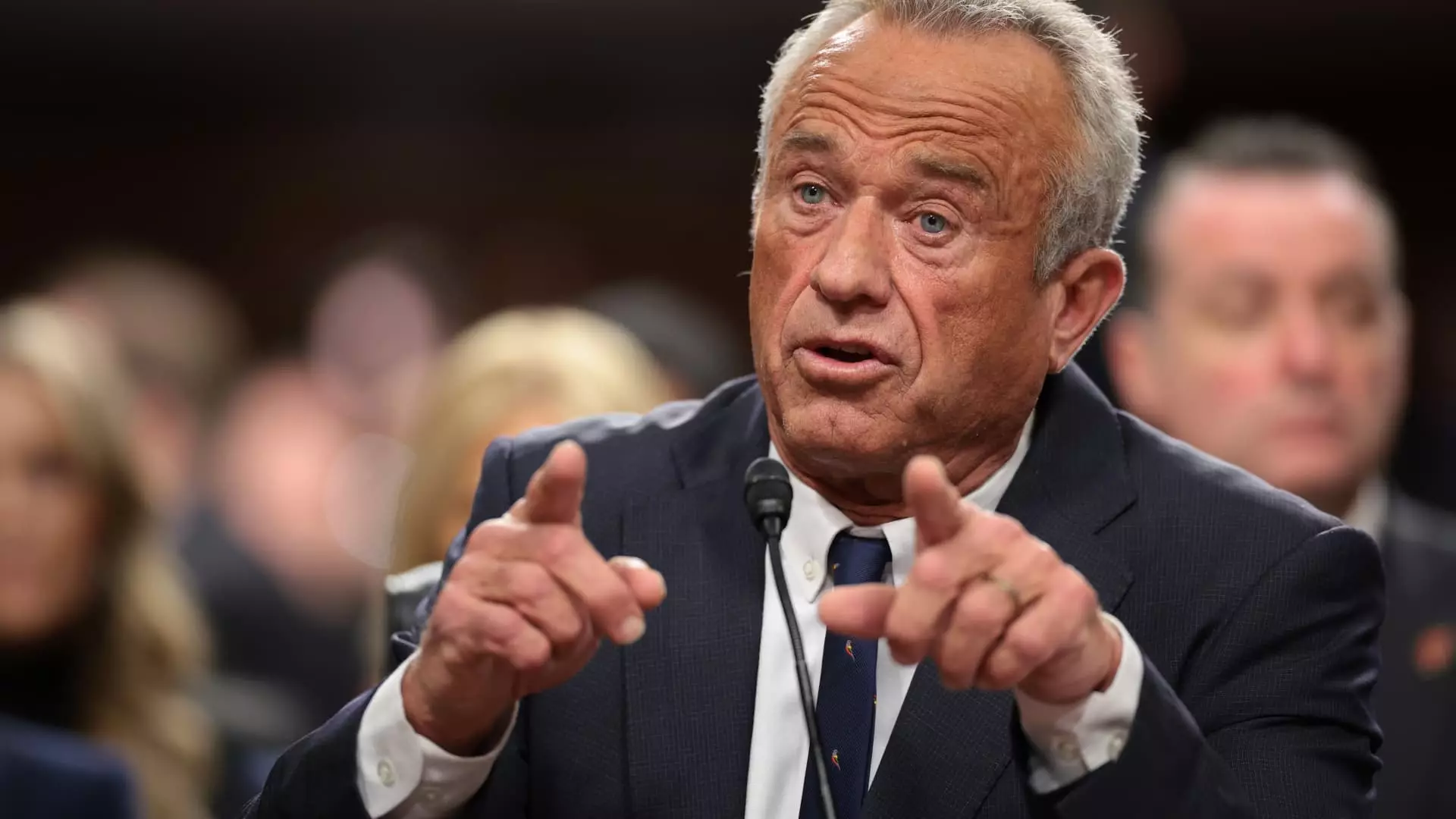Secretary of Health and Human Services Robert F. Kennedy Jr. recently convened a meeting with top figures from the food industry, highlighting his administration’s commitment to eliminating what he described as “the worst ingredients” from our dietary staples. While this may sound commendable at first, a deeper look at the implications reveals a troubling agenda that prioritizes ideology over science. The risk is that Kennedy’s pursuit of purity could actually generate adverse consequences for public health instead of the intended improvements.
Kennedy’s vocal disdain for artificial dyes underscores a broader pattern of skepticism towards scientifically validated practices, such as those overseeing food safety. He has vocalized his intention to eradicate certain food additives by the end of his tenure—an admirable goal but one that raises serious questions about the efficacy and rationale behind such sweeping regulatory changes. Artificial dyes, despite their portrayal as culinary villains, have a long history of regulated use, and the scientific community has extensively studied, debated, and ultimately deemed many of them safe for consumption.
Politicizing Public Health
Kennedy’s assertions echo a troubling narrative best characterized as the politicization of public health. His belief, framed under the “Make America Healthy Again” platform, posits a grand conspiracy between drug companies and federal agencies instructing citizens on their health choices. By presenting public health regulations as something sinister, he pits consumers against the very institutions designed to protect them. This dichotomy fosters a climate of mistrust rather than promoting collaboration aimed at shared goals—namely, improving health outcomes for all Americans.
The concept of collaboration was espoused in the meeting with food executives, yet Kennedy’s readiness to act unilaterally if industry leaders do not voluntarily comply raises red flags. Will these “constructive conversations” lead to constructive policies, or merely serve as a cover for regulatory overreach? The Consumer Brands Association’s optimistic statement about future engagement feels somewhat hollow in the face of a political climate that deliberately seeks to undermine expert opinions in favor of ideology.
An Unbalanced Approach to Nutritional Health
Kennedy’s vision for prioritizing nutritious food overloads the landscape with an oversimplified solution to what he frames as a chronic disease epidemic. While improved access to nutritious, wholesome foods is undoubtedly essential, his rhetoric implies that a singular focus on diet can solve complex public health challenges—ignoring the multifaceted nature of chronic diseases. Addressing these issues requires a holistic approach that incorporates mental health, social determinants, and community resources, alongside nutritional considerations.
Furthermore, Kennedy’s recent actions related to the FDA’s revocation of Red No. 3’s authorization can be perceived as capricious at best. This particular dye has long been subject to scrutiny, yet the challenges it allegedly presents fall into a category best dealt with via robust science rather than reactionary policies. The implication that removing individual ingredients can address the complex web of health issues facing our nation could mislead consumers looking for easy solutions to intricate problems.
The Potential Fallout on Immunization Policies
One of the darker elements of Kennedy’s agenda revolves around his stance on vaccinations, especially concerning children. His intentions to review the vaccination schedule and remove influential figures from advisory committees raise nuanced questions about the safety and efficacy of immunization policies. As vaccination rates in the U.S. decline, any changes to public health policy initiated from ideological motivations could destabilize years of progress in controlling infectious diseases.
Kennedy’s status as a vaccine skeptic makes these early moves particularly concerning, as they represent an attempt to reshape public perception regarding vaccination, based on personal beliefs rather than consensus from the public health community. A regression towards lower vaccination rates has potential public health repercussions, creating an environment ripe for the resurgence of preventable diseases—a dangerous fallout from his agenda that must not be overlooked.
While Kennedy’s pursuits may resonate with some as a call for cleaner food and healthier lives, they also carry risks that could threaten evidence-based guidelines and public health as a whole. Such an agenda, driven by fears and conspiracies rather than science, has far-reaching implications that every citizen should scrutinize critically.


Leave a Reply